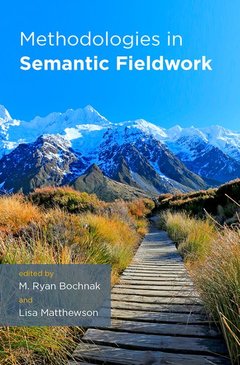Description
Methodologies in Semantic Fieldwork
Coordinators: Bochnak M. Ryan, Matthewson Lisa
Language: English
Subject for Methodologies in Semantic Fieldwork:
Publication date: 02-2015
366 p. · 23.6x16.3 cm · Hardback
366 p. · 23.6x16.3 cm · Hardback
Description
/li>Biography
/li>
This volume discusses methodological issues in conducting elicitation on semantic topics in a fieldwork situation. In twelve chapters discussing 11 language families from four continents, authors draw on their own fieldwork experience, pairing explicit methodological proposals with concrete examples of their use in the field. Several chapters cover issues specific to semantic topics such as modality, comparison, tense and aspect, and definiteness, while others focus on elicitation techniques more generally, addressing methodological issues such as the creation of elicitation plans, the choice of language in which to conduct elicitation, and the status of translation tasks. Together, the chapters of this volume demonstrate that elicitation on semantic topics, when conducted following sound methodologies, can and does produce reliable results. Given the high number of languages currently classified as endangered, conducting one-on-one fieldwork with native speaker consultants is critical for gathering new empirical findings that bear on linguistic theory.
M. Ryan Bochnak is a Mellon Postdoctoral Fellow and Visiting Assistant Professor in the Department of Linguistics at the University of California, Berkeley. His dissertation, "Cross-linguistic Variation in the Semantics of Comparatives," investigated the semantics of comparative constructions in Washo (isolate/Hokan) and Luganda (Bantu). Lisa Matthewson is Professor of Linguistics at the University of British Columbia. Her research interests center on semantic variation and universals, with specific attention to modality, tense, aspect, quantification, and presupposition. She has worked on St'at'imcets (Salish) since the early 1990s, on Gitksan (Tsimshianic) since 2010, and has recently begun investigating Niuean (Austronesian) and Tlingit (Na-Dene).
© 2024 LAVOISIER S.A.S.




